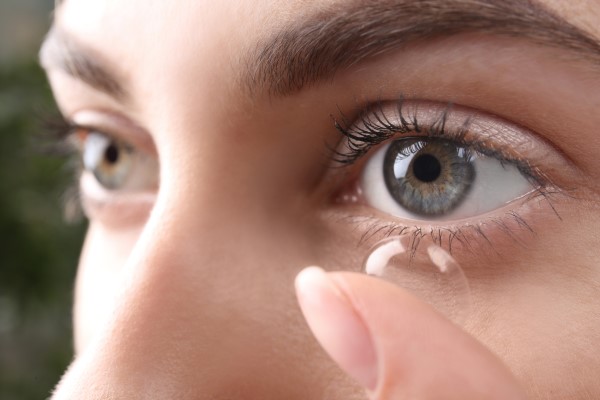



Contact lenses are a great choice for people who need vision correction but would rather avoid having to deal with wearing glasses full-time or LASIK surgery. These lenses go directly on the eye and they have evolved a lot in the past few decades.
Adaptive contact lenses that protect your eyes against sunlight now exist along with extended wear contacts that can stay in for months.
Figuring out the best type of contact lenses
One of the most important things to do when shopping for contact lenses is to consider the materials that the different types of lenses are made with. There are five main types of contact lenses, these are:
- Soft lenses: These contact lenses are made from gel-like plastics that contain water called hydrogels. These are very thin lenses that conform to the front surface of the wearer’s eyes. They are responsible for the popularity of contact lenses thanks to how comfortable they are from the time they’re inserted
- Silicone hydrogel lenses: These are a more porous type of soft contact lenses that allow more oxygen to reach the cornea when worn. This allows the wearer to use the lenses for significantly longer periods
- Gas permeable lenses: These are hard contact lenses that are very similar to Polymethyl methacrylate (PMMA) lenses, but they allow more oxygen to get to the cornea. They also fit better than conventional hard lenses and they tend to lead to sharper vision than soft contact lenses, especially for those dealing with astigmatism. It takes a few weeks to get used to wearing GP lenses, but they eventually become as comfortable as GP lenses
- Hybrid contact lenses: Hybrid lenses can be as comfortable as soft contact lenses and they provide the sharp vision associated with gas permeable lenses. Hybrid contact lenses have a rigid glass permeable center that is surrounded by hydrogel material. While these type of lenses provide the best features of soft and hard contact lenses, they are more expensive than soft lenses and they can be more challenging to insert or remove
- (PMMA): PMMA contact lenses are made from a rigid, transparent material and provide excellent optics. However, these lenses restrict the flow of oxygen to the eye and they can be quite uncomfortable when starting. This type of contact lenses was the first type but gas permeable lenses are typically preferred over them nowadays
We have the right type of lenses for you
Studies show that silicone hydrogel lenses are the most popular in the U.S. with 64% of those who wear contact lenses choosing them, followed by soft hydrogen lenses at 22%, and gas permeable lenses at 11%.
If you have ever worn all three types of lenses, these numbers may not be surprising. Gas permeable lenses get you sharper vision, but the discomfort that comes with wearing them negates this benefit. Soft contact lenses adequately correct vision, and it is easy to forget you have them in.
Call or visit our Dallas clinic to learn more about the different types of contact lenses.
Here’s how to reach us…
Request an appointment here: https://www.texasoptical.net or call Texas Optical at (214) 771-7333 for an appointment in our Dallas office.
Check out what others are saying about our services on Yelp: Contact Lenses in Dallas, TX.
Recent Posts
For those living with diabetes, undergoing a diabetic eye exam is one of the most important steps in protecting their vision and overall eye health. High blood sugar levels can lead to a range of complications, including conditions that damage the eyes over time. These exams help detect these issues before they become serious, allowing…
Contact lenses provide clear vision and convenience for individuals who prefer an alternative to eyeglasses. However, proper care and maintenance are essential to prevent infections, irritation, and eye damage. Neglecting hygiene practices can lead to serious eye conditions, including corneal ulcers and keratitis. Understanding how to clean, store, and handle contact lenses ensures long-term eye…
Maintaining eye health and preventing long-term issues is the result of consistent and quality vision care. Many people focus on overall wellness but may overlook daily habits that support healthy eyesight. However, taking simple steps each day can protect vision, reduce eye strain, and prevent future complications. By making eye health a priority, it is…
Prescription contacts provide vision correction, comfort, and convenience for those who do not want to wear glasses. However, caring for and wearing contacts takes some getting used to. Learning to insert, remove, and maintain them will help ensure a comfortable and safe experience.Not all contact lenses are the same, and choosing the right pair is…


